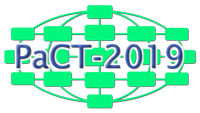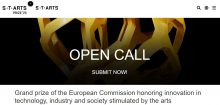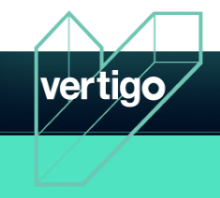Sponsored by Russian Ministry of Education and Science, Russian Academy of Sciences, Russian Foundation for Basic Research
 We are glad to announce the 15th International Conference on Parallel Computing Technologies (PaCT-2019). The Conference is to be held in Almaty, Kazakhstan, August 19-23, 2019.
We are glad to announce the 15th International Conference on Parallel Computing Technologies (PaCT-2019). The Conference is to be held in Almaty, Kazakhstan, August 19-23, 2019.
The Conference is jointly organized by the Institute of Computational Mathematics and Mathematical Geophysics (Russian Academy of Sciences, Novosibirsk, Russia), Novosibirsk State National Research University, Al-Farabi Kazakh National University (Almaty, Kazakhstan), and University of International Business (Almaty).
The aim of the PaCT-2019 is to give an overview of new developments, applications, and trends in parallel computing technologies. We sincerely hope that the conference will help our community to deepen understanding of parallel computing technologies by providing a forum for an exchange of views between scientists and specialists from all over the world. We welcome your active participation.
WEBSITE: http://ssd.sscc.ru/conference/pact2019/
MAIN TOPICS
- All technological aspects of the applications of parallel computer systems
- High level parallel programming languages and systems
- Methods and tools for parallel solution of large-scale problems
- Languages, environments and software tools supporting parallel processing
- Operating systems, scheduling, mapping, load balancing
- General architectural concepts
- Cellular automata
- Performance measurement and analysis tools
- Active knowledge and program construction
- Software for grid and cloud computing
- Scalable computing
- Fragmentation and aggregation of algorithms and programs
- Programs assembling and reuse
- Distributed algorithms

CALL FOR PAPERS – extended deadline 31 March 2019
Original papers are solicited for the conference. All contributions will be reviewed by the international Program Committee. Authors will be notified of acceptance by April 15, 2019. We will require camera-ready full papers by May 26, 2019.
In order to submit a paper or just indicate your interest in the PaCT-2019, please register at the site of the conference http://ssd.sscc.ru/conference/pact2019and follow the instructions which you will find there. A paper submission system will be activated on the 10th of December, 2018. If you face any difficulties using this site, please contact the Secretary (pact2019@ssd.sscc.ru). Only electronic submission of manuscripts is possible.
The first page should include (but not be limited to) the following information: title, authors’ full names, affiliation, addresses, telephone numbers, e-mail addresses. To gain the better understanding of your abstract, we also request to include the following information: short review of related papers, formulation of the problem, objectives, description of results, main ideas, and list of references.
The organizers expect that the authors of selected papers will present their work at the Conference. Proposals for workshops and 1/2 and full day tutorials will be considered.
The Conference Proceedings are planned to be published as the volume of the Springer Verlag LNCS (Lecture Notes in Computer Science) series and distributed at the Conference. We plan also to publish selected papers in a special issue of an indexed international journal. The official language of the Conference is English.
IMPORTANT DATES
- Submission of the full paper: February 17, 2019
- Deadline for extended abstracts: March 3, 2019
- Notification of acceptance: April 15, 2019
- Camera-ready version of the accepted paper: May 26, 2019
CONTACT INFORMATION
NOVOSIBIRSK, RUSSIA
Prof. Victor Malyshkin
PaCT-2019 Organizing Committee
Phone: +7 (383) 330-89-94
Supercomputer Software Department
ICM&MG, Russian Academy of Sciences
Pr. Lavrentieva, 6
630090, Novosibirsk, RUSSIA
E-mail: pact2019@ssd.sscc.ru
PaCT-2019 Web pages: http://ssd.sscc.ru/conference/pact2019
PROGRAM COMMITTEE
Victor Malyshkin, professor, head of the Supercomputer Software Department, Institute of Computational Mathematics and Mathematical Geophysics, Russian Academy of Sciences, Chairman
Darkhan Akhmed-Zaki, president of the University of International Business, professor at al-Farabi Kazakh National University, Almaty, Kazakhstan
Sergey Abramov, head of the Program Systems Institute, Russian Academy of Sciences
Farhad Arbab, head of Foundations of Software Technology Cluster, Leids University Foundation professor, Leiden Institute for Advanced Computer Science & Centre for Mathematics and Computer Science, Netherlands
Jan Baetens, Department of Mathematical Modelling, Statistics and Bioinformatics, Faculty of Bioscience Engineering, Ghent University, Belgium
Stefania Bandini, director of Complex Systems & Artificial Intelligence Research Center, director of the PhD School in Computer Science, University of Milano-Bicocca, Italy
Olga Bandman, professor, Supercomputer Software Department, Institute of Computational Mathematics and Mathematical Geophysics, Russian Academy of Sciences
Thomas Casavant, director of the UI Center for Bioinformatics and Computational Biology, director of the ECE Parallel Processing Laboratory, professor, University of Iowa, USA
Pierpaolo Degano, professor of the Department of Computer Science, director of the PhD program in Computer Science, University of Pisa, Italy
Dominique Deserable, head of the research group “Cellular Automata in Hydrogeomechanics”, Laboratory of Civil and Mechanical Engineering (LGCGM), National Institute for Applied Sciences, Rennes, France
Victor Gergel, professor, dean of Computational Mathematics and Cybernetics department, Lobachevsky State University of Nizhni Novgorod
Bernard Goossens, professor, University of Perpignan, France
Sergei Gorlatch, professor of Computer Science, Institute of Computer Science, University of Muenster, Germany
Yuri G. Karpov, head of Department of Distributed Computing and Computer Networks, St.Petersburg State Polytechnical University, Russia
Alexey Lastovetsky, founding director of the Heterogeneous Computing Laboratory, senior lecturer, School of Computer Science and Informatics, University College Dublin, Ireland
Jie Li, professor, Faculty of Engineering, Information and Systems, University of Tsukuba, Japan
Thomas Ludwig, director of German Climate Computing Center, professor, University of Hamburg, Germany
Giancarlo Mauri, director of Department of Computer Science, Systems and Communications, professor, University of Milano-Bicocca, Italy
Igor Menshov, Keldysh Institute for Applied Mathematics, Russian Academy of Sciences, Moscow, Russia
Nikolay Mirenkov, special honorary professor, University of Aizu, Japan
Marcin Paprzycki, associate professor, Systems Research Institute, Polish Academy of Sciences, Poland
Dana Petcu, director of Institute e-Austria Timisoara, professor at Computer Science Department, West University of Timisoara, Romania
Viktor Prasanna, director of the Center for Energy Informatics, executive director of USC-Infosys Center for Advanced Sogftware Technologies, professor, University of Southern California, USA
Michel Raynal, professor of Computer Science, Research Institute in Computer Science and Random Systems, Rennes, France
Bernard Roux, director of Research at CNRS, professor, Laboratoire de Mecanique, Modelisation & Procedes Propres, National Center for Scientific Research, France
Waleed W. Smari, Ball Aerospace & Technologies Corp., Ohio, USA
Uwe Schwiegelshohn, professor of computer engineering, TU Dortmund University, Germany
Victor Toporkov, professor, head of the Department of Computer Engineering, National Research University “Moscow Power Engineering Institute”, Russia
Carsten Trinitis, professor, head of the research group “Parallel and Distributed Architectures”, head of system administration, Technical University of Munich, Germany, professor for Distributed Computing, University of Bedfordshire, United Kingdom
Roman Wyrzykowski, head of the Institute of Computer and Information Sciences, director of Metropolitan Area Network, professor of Computer Science, Czestochowa University of Technology, Poland






 If you have interesting news and events to point out in the field of digital cultural heritage, we are waiting for your contribution.
If you have interesting news and events to point out in the field of digital cultural heritage, we are waiting for your contribution.
























